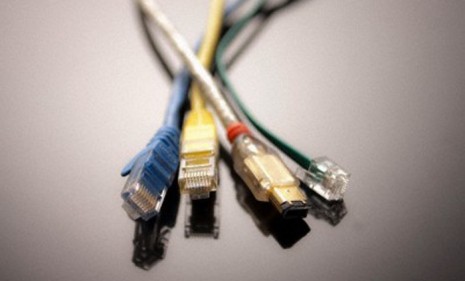The looming IP-address shortage: A crisis for the internet age
The internet will run out of unique IP addresses by 2011. Does the impending "IPcalypse" threaten the future of the web?

A free daily email with the biggest news stories of the day – and the best features from TheWeek.com
You are now subscribed
Your newsletter sign-up was successful
Technology experts are warning that the internet could run out of addresses within the next year. Your "internet protocol" or IP address is the unique 32-bit number that identifies your computer or wireless device when sending or receiving information on the internet. But at the current pace, all the remaining IP numbers will be claimed within the next year. What does this mean for the future of the internet?
How many IP addresses are there?
When the internet was invented in 1977, the pioneers of the technology created a system that gave each connecting computer a 32-bit unique address — equating to a total of about 4.2 billion possible IP numbers.
The Week
Escape your echo chamber. Get the facts behind the news, plus analysis from multiple perspectives.

Sign up for The Week's Free Newsletters
From our morning news briefing to a weekly Good News Newsletter, get the best of The Week delivered directly to your inbox.
From our morning news briefing to a weekly Good News Newsletter, get the best of The Week delivered directly to your inbox.
How many addresses do we have left?
According to ReadWriteWeb, 94 percent of all IP numbers have been claimed — leaving 230 million addresses still available. Projecting forward, those will run out on or about July 2, 2011.
Can't we just add more numbers?
Of course. The plan is for internet users to switch to a revised internet protocol with 128 bits instead of 32 bits. That would allow for about 230 trillion trillion trillion addresses, enough to keep the internet working for quite a while yet. It's comparable, says The Atlantic's Alexis Madrigal, to the telephone companies' decision in the 1990s to "release more area codes and start ten-digit dialing."
A free daily email with the biggest news stories of the day – and the best features from TheWeek.com
So that's problem solved then, isn't it?
Not exactly. Switching to an 128-bit system — also known as IPv6 — is much harder to adopt than simply changing a telephone number. Internet experts first devised the IPv6 system back in 1996, but it has taken this long for it to even be considered by the largest tech companies. The problem is our current system — known as IPv4 — is not interoperable with IPv6. So if a network is to operate with the new system, then all its peripheral devices must be able to use it.
Which companies have begun using IPv6?
Google, Facebook, Verizon and Comcast have all either begun using or testing IPv6 systems. But the commercial use is limited for the moment by the interoperability issue — and all commercial devices still come with IPv4 as standard. In reality, IPv6 is currently used mostly for specialized, self-contained networks (sometimes referred to as the Internet of Things), meaning the internet protocol shortage is still quite serious.
What will happen when the IPv4 addresses run out?
Some doom-sayers are "comparing the situation to Y2K," says John D. Sutter at CNN, warning that the internet may stop working if a new system isn't adopted. A more likely result is that tech companies will be forced to quickly move to IPv6 as the number of available IPv4 addresses starts getting very low. That could leave parts of the internet inaccessible to those on very new devices. Others say it is "Y2K-style fear mongering," and that tech companies are more than able to switch over to the new IPv6 platform without disrupting internet access for iPad users and the like. But one way or another, warns Richard MacManus at ReadWriteWeb, "the move will have to be made."
Sources: ReadWriteWeb, CNN, The Atlantic, DataCenterKnowledge, ICANN
-
 The environmental cost of GLP-1s
The environmental cost of GLP-1sThe explainer Producing the drugs is a dirty process
-
 Nuuk becomes ground zero for Greenland’s diplomatic straits
Nuuk becomes ground zero for Greenland’s diplomatic straitsIN THE SPOTLIGHT A flurry of new consular activity in the remote Danish protectorate shows how important Greenland has become to Europeans’ anxiety about American imperialism
-
 ‘This is something that happens all too often’
‘This is something that happens all too often’Instant Opinion Opinion, comment and editorials of the day